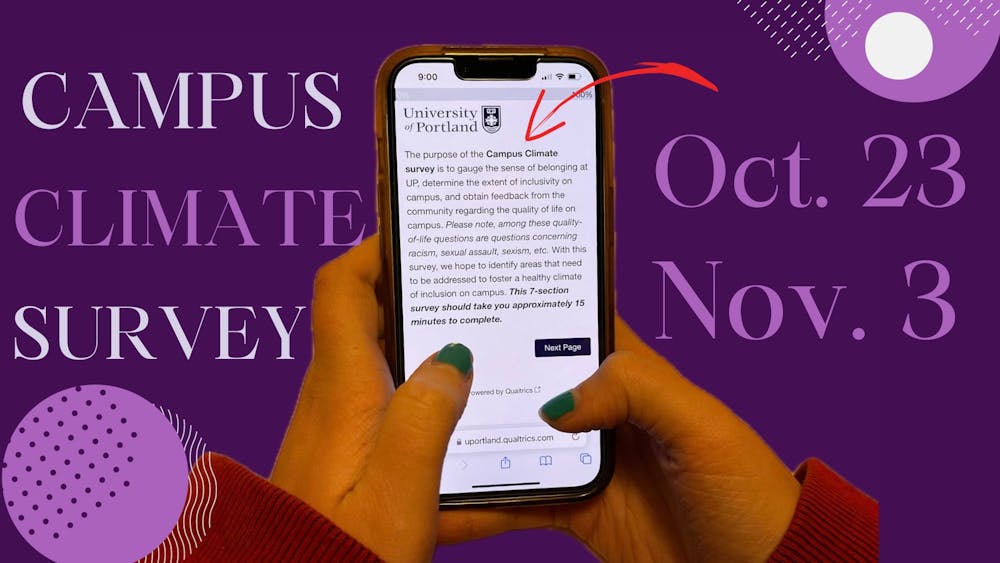The Office of Institutional Research (IR) released the Campus Climate survey last week to students, faculty and staff at UP to gauge the experiences and opinions of UP’s inclusivity, particularly on DEI issues on campus.
The data collected from the 15-minute anonymous survey will be used to help inform UP administration on decisions to improve the University. For Assistant Director of Institutional Research Adeya Powell, this is a way to amplify the voices of the UP community and what they want to see change.
“One of the things that is unique about our survey is at the end of the survey we ask you, based on your experience, what do you think should be the priority for the school?” Powell said. “So [UP admin] they're deciding based on the numbers what they think should be a priority. Now, with our survey, we're allowing students, faculty and staff to say what should be priorities for the school.”
The survey consists of questions on various issues on the general climate of the campus — like ableism, ageism, anti-LBBTQ+, sexism, racism and more — as well as questions for participants to share their personal experiences. This survey is not a reporting tool, however, reporting channels will be listed in the survey if a participant chooses to report their experiences.
Director of Institutional Research Michael Johnson emphasizes that this survey is completely anonymous. Besides standard demographic survey questions, the IR office will not be gathering personal information to ensure confidentiality.
“We're not going to ask you for your email or anything like that,” Johnson said. “If you happen to say anything that might identify you, we are going to kind of strip that out of any sort of responses. The confidentiality is that it stays within the IR office and then the anonymity is that we don't require you to submit any personalized data about yourself.”
Usually, climate surveys on college campuses are designed by outside vendors that often resemble national surveys and can cost up to thousands of dollars. The IR office wanted to change that, setting out on an ambitious journey that lasted several months to see how they could tailor this survey to be as unique as possible to UP.
One way they did this was to put together a committee of students, staff and faculty to get input on the survey’s questions. This step was crucial in the drafting process in order to make sure the survey addressed relevant concerns on campus, according to Powell.
“We literally looked at maybe 30 plus surveys and did a lot of research and saw what they were doing right and what they were doing wrong,” Powell said. “We crafted an initial survey. We thought [the questions] were pretty good, but then we let our committee look at it and they had some opinions. We honored everyone's opinion because it's a community-built survey.”
Johnson and Powell seek to continue getting feedback by creating “focus groups” in the future. At the end of the survey, participants have the option to select if they are interested in joining a focus group. Participants can also enter to win prizes for completing the survey.
Both of these portions are not connected to the initial survey, keeping with the IR office’s commitment of anonymity and confidentiality for participants.
“On this campus people often wonder, ‘is it really anonymous or is it really confidential?’” Johnson said. “It can't be when you have prizes, but this is the way that we've disconnected those surveys. So we're really trying to do everything that we can to make sure people feel confident taking the survey that their data is going to be not shared with anyone.”
Johnson and Powell are aiming to have a tentative report released in early January with initial findings. Full results are expected to be shared by the end of Spring 2024, and both are eager to get this data out into the UP community.
“Even when data tells us bad stuff, it's never bad to find that out,” Johnson said. “There are a lot of good things about the University as well that are gonna show up in the survey. But what we really want are the parts that can be improved upon because that gives us something to really shoot for.”
More information about the Campus Climate survey can be found here. Take the Campus Climate survey here.
Kimberly Cortez is the Diversity, Equity & Inclusion Editor for The Beacon. They can be reached at cortez25@up.edu.









